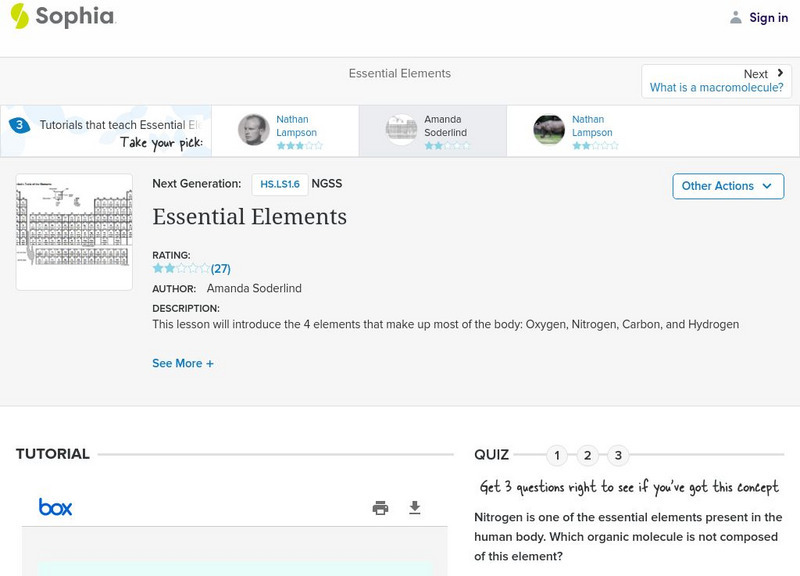Royal Society of Chemistry
Royal Society of Chemistry: Nitrogen
A short but nice description of nitrogen's uses and properties. Discusses the history of nitrogen and its characteristics.
Other
What Is a Soil Test?
The North Carolina Department of Agriculture explains soil testing, taking a soil sample, and analyzing the results.
Other
Valley City Junior High's Water Research: Water Issues
This site talks about the nitrate and nitrogen forms that can be found and how to test for it. Includes illustrative diagrams and graphs.
Other
Chemistry Resources: The Nitrogen Family
This site provides a photograph and information on all the elements of the Nitrogen family.
Other
Composting Practices (Pdf) [Pdf]
This publication explains the agricultural and environmental benefits of composting household waste. It explains the difference between hot and cool composting systems. It also documents research indicating turfgrass benefits from humus...
Geography 4 kids
Geography4 kids.com: The Nitrogen Cycle
Living creatures require nitrogen to live. This resource highlights the nitrogen cycle and its significance.
Khan Academy
Khan Academy: Prokaryote Interactions & Ecology
Learn about cooperation and "multicellularity" in prokaryotes including mutualisms, commensalisms, parasitisms. Also find out the role of prokaryotes in the carbon and nitrogen cycles.
Chem4kids
Chem4 Kids: Element List
Site provides the first 18 elements found in the Periodic Table. Click on an element to discover where it is found and what it's characteristics are.
Texas Education Agency
Texas Gateway: Abiotic Cycles
Given scenarios, illustrations, or descriptions, the student will describe the flow of matter through carbon and nitrogen cycles and describe the consequences of disrupting these cycles.
McGraw Hill
Mc Graw Hill: Introduction to Chemistry
This WebQuest takes students through the basics of chemistry. Explore the Kelvin, Celsius and Fahrenheit Scales, the periodic table, Nitrogen and gravity.
Khan Academy
Khan Academy: Biogeochemical Cycles Review
Review information on the cycling of matter throughout the spheres of Earth.
Khan Academy
Khan Academy: Biogeochemical Cycles
Test your knowledge of the water cycle, carbon cycle, and nitrogen cycle.
Wikimedia
Wikipedia: Amide
Wikipedia entry for the chemical compound amide. Includes naming conventions, properties, reactions, and so on.
Museum of Science
The Atom's Family: Phases of Matter
Help the Phantom choose a material and observe the changes at different temperatures in the molecule chamber. What happens to the elements or molecules as the temperature changes?
Thomas Jefferson National Accelerator Facility
Jefferson Lab: Beta Decay
This site from Jefferson Lab provides a description of beta decay along with two helpful formula examples. Several links are provided throughout this page for additional information on related subjects.
Other
Siegen University: Burning of Magnesium
This site from Siegen University contains brief information and a step-by-step photo display of burning magnesium. The information is very short but the pictures are definately worth checking out.
Other
Introduction to Nitrogen Functional Groups
This organic chemistry tutorial describes the general class of nitrogen functional group compounds (amines and amides).
Other
Ed Hume Seeds: Testing Your Soil
Conduct a soil test to find out what nutrients your soil is lacking. This site gives directions on how to gather a soil sample and what nutrients you should test for to get the best soil.
PBS
Pbs Teachers: Coming Into America: Dating Artifacts 9 12 [Pdf]
Investigate new discussions on the presence of humans in North America, and emulate the work of archeologists in dating artifacts at a dig site. Use clay to model how the radioactive isotope of carbon (C14) is used in dating organic...
Texas A&M University
Texas A&m University: Composting for Kids
Slide show with script from the Texas A&M University describing how to layer a compost bin, and how to make a trench compost or pocket compost. Gives nitrogen and carbon content examples of compostable materials. Explains gardening...
Sophia Learning
Sophia: Essential Elements: Lesson 2
This lesson will introduce the 4 elements that make up most of the body: Oxygen, Nitrogen, Carbon, and Hydrogen. It is 2 of 4 in the series titled "Essential Elements."
Sophia Learning
Sophia: Essential Elements: Lesson 3
This lesson will introduce the 4 elements that make up most of the body: Oxygen, Nitrogen, Carbon, and Hydrogen. It is 3 of 4 in the series titled "Essential Elements."



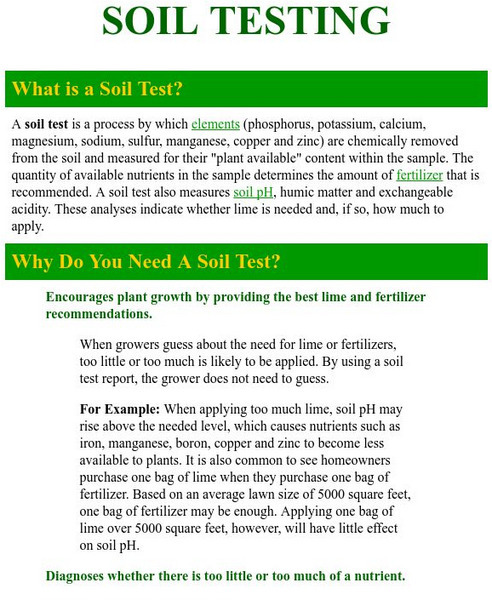


![Composting Practices (Pdf) [Pdf] Handout Composting Practices (Pdf) [Pdf] Handout](https://d15y2dacu3jp90.cloudfront.net/images/attachment_defaults/resource/large/FPO-knovation.png)

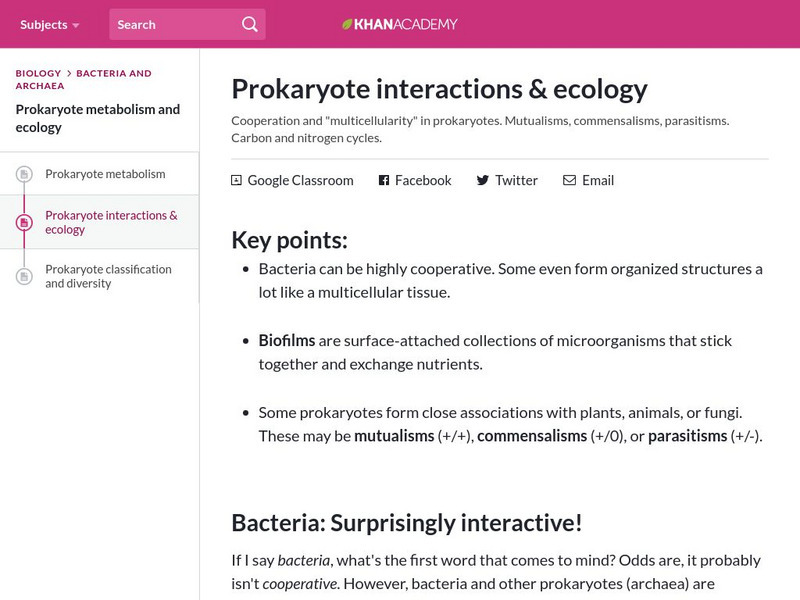
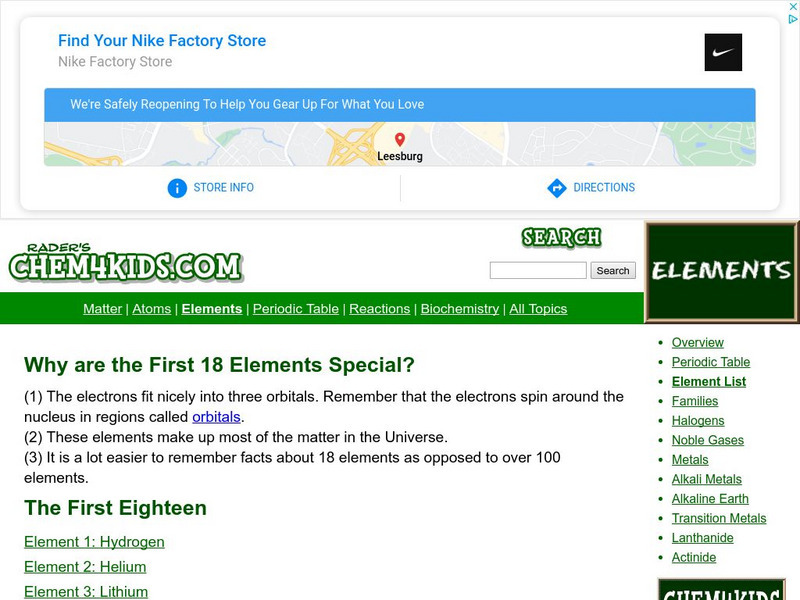
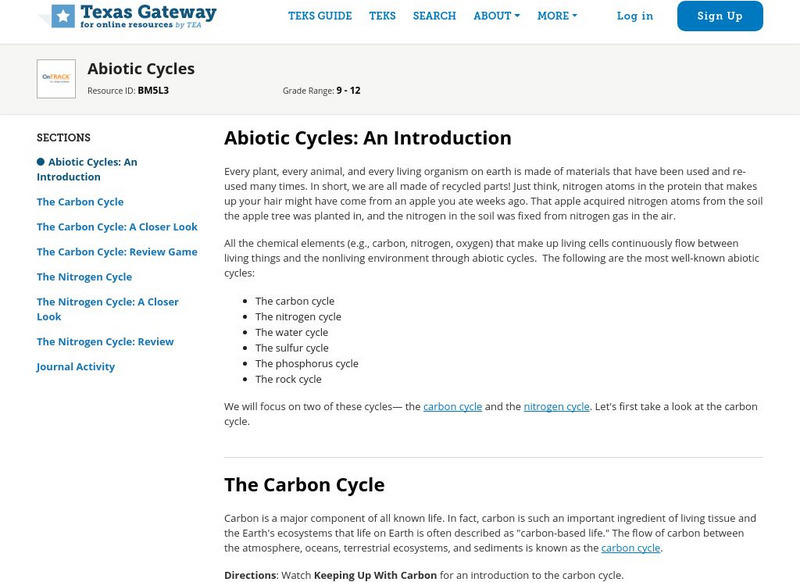




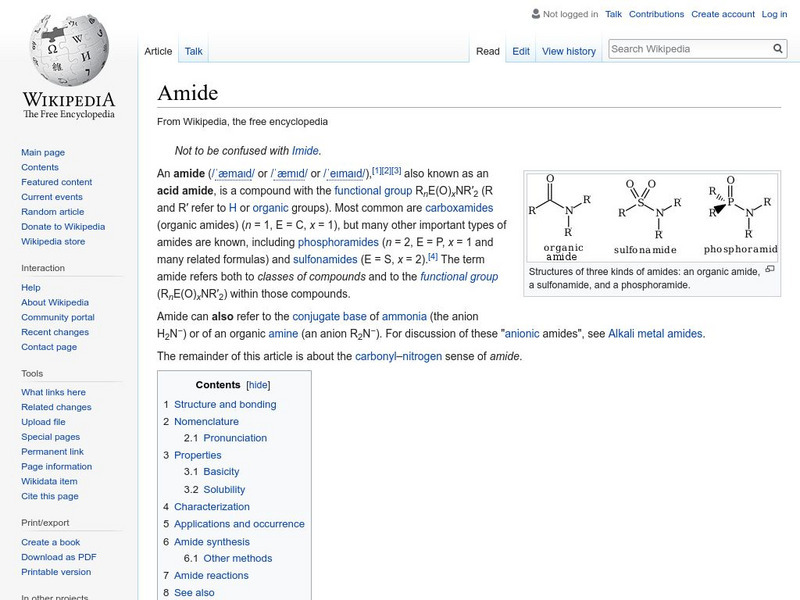

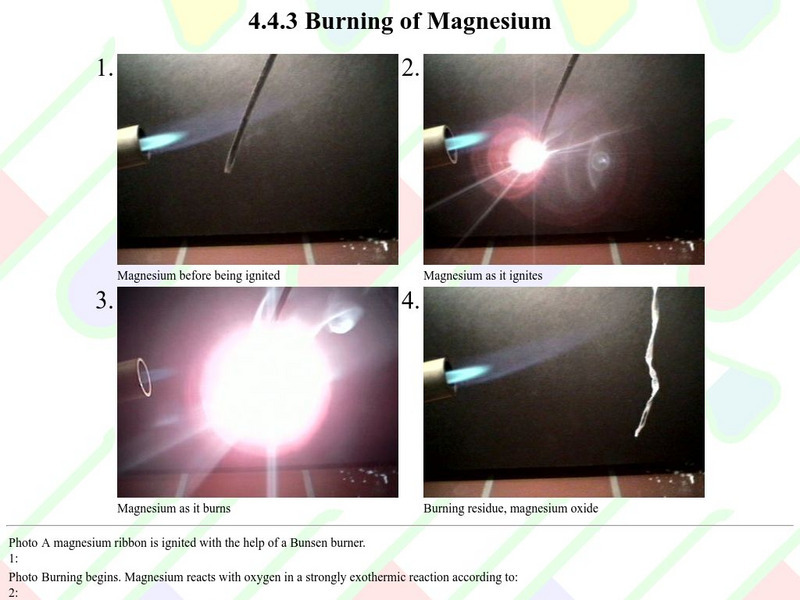


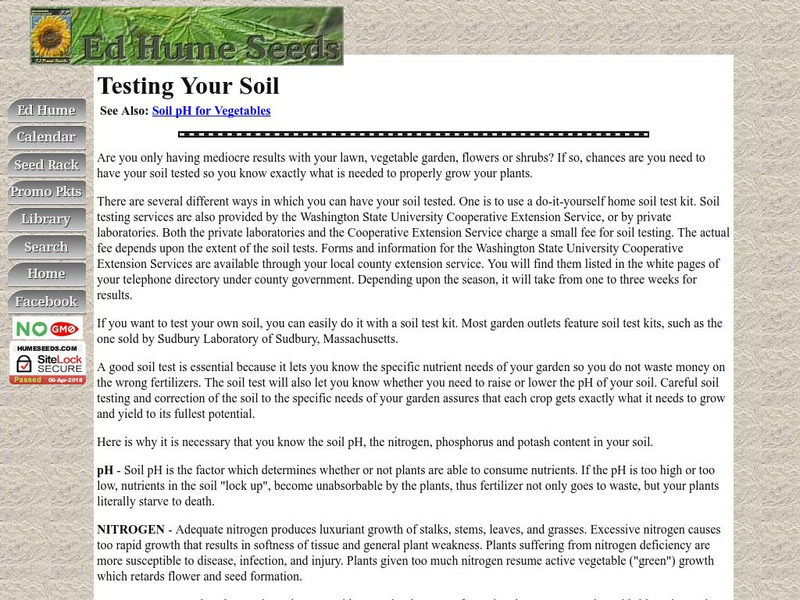
![Pbs Teachers: Coming Into America: Dating Artifacts 9 12 [Pdf] Unit Plan Pbs Teachers: Coming Into America: Dating Artifacts 9 12 [Pdf] Unit Plan](https://content.lessonplanet.com/knovation/original/120529-1fff0a46b8b0ffc6cda465ec2fb4d28e.jpg?1661418872)
